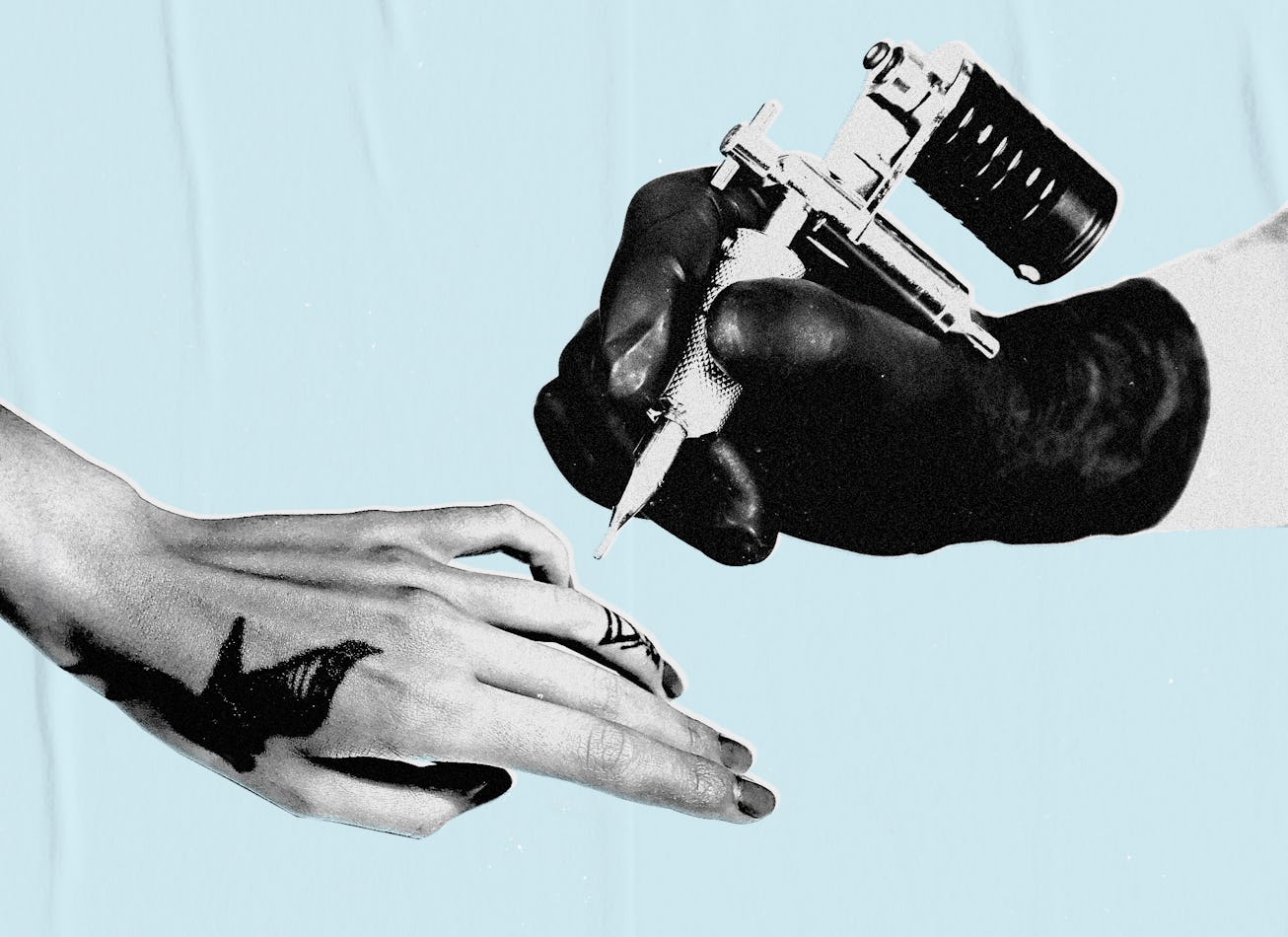
Beauty
How Tattoos Became a Symbol Of Control & Pleasure In the Covid Era
A look into how the tattoo industry has shifted over the past year.
Almost a full year since the world shut down due to the COVID-19 pandemic, the appeal of getting a tattoo (Visiting a shop! Being touched!) has only grown. As millions of people are confined to their homes to contain the spread of the virus, they’re also turning to body modifications to ease the lethargy of quarantine. A brave amount got bangs. Some got plastic surgery. Many are also getting tattoos—some for the first time—to commemorate this year, or simply to feel something. But as 2020 uprooted society in more than one way, it’s also devastated tattoo artists and shops.
“The pandemic has tremendously affected my entire business and all of the artists in my shop and their families. Having to close the doors to our shop for pretty much the entire year was not only challenging, but harmful to our overall business. We were each forced to cancel all of our clients at a moment's notice and you can only imagine the difficulties that poses, since tattooing is our livelihood, how we take care of ourselves and our families,” Katrina Jackson, a Los Angeles based artist, told NYLON.
Jackson also said that, as a first time business owner, she’s unfortunately watched many of her neighboring businesses close their doors permanently. Since coronavirus reached the states, nearly 100,000 businesses have shut down for good.
Across the world, different places have different restrictions: for tattoo shops that are open, there’s been major changes in guidelines (limited capacity, temperature checking, etc). Sara Delgado, a fashion editor, tells NYLON that she got her quarantine tattoo in early July after having been in strict lockdown since March.
“I’m not exaggerating when I say I left my house just once to take out the trash before the restrictions were loosened in June, and even then I only went out for socially distant walks. During lockdown, my days were basically just waking up, working, going to sleep, repeat,” says Delgado. “That “Groundhog Day” feeling got me craving change, and there are only a handful of body modifications you can do at home. Like many, I dyed my hair, cut my bangs, and got a ton of new skin care products during the first few months of quarantine–but it just wasn’t cutting it so when tattoo parlors opened again I jumped on the chance.”
Others have parroted her sentiment: that even the feeling of an ink needle on flesh is better than feeling the stress of 2020, which was notably a rocky election year for America. Sophie Balaban, a Los Angeles actor and writer, got her tattoo on election night and credits the timing more than the timing.
“I don't think tattoos necessarily have to mean anything and mine was an abstract collaboration between myself and the tattoo artist. That said, I'm just deeply anxious as a person, and don't do well in high-stress situations where I have no control,” Balaban told Nylon. “Back in 2016, I ended up with an extremely high fever on election night, which turned out to be a blessing in disguise because I went to sleep at 7 PM and missed the whole thing. Obviously, I couldn't plan to have a fever this time around, but I could plan to get my next tattoo. Being stabbed 4 million times in the arm felt preferable to being neurotically glued to the election results.”
As America finished a narrow presidential race, it’s also still facing political reckonings in the beauty space. Over the Black Lives Matter protests last summer, conversations about diversity reached a peak as brands, leaders, and entire industries had to reflect on what needs to change. Mira Mariah, a New York City based tattoo artist, says the tattoo landscape needs to consider how to cater to clients of all shapes, sizes, and skin color. To her, diversity in the tattoo space means sharing more imagery of tattoos on all skin types and all body types.
“A lot of people aren't as accustomed to seeing torso tattoos on larger bodies, cellulite, scars, fat rolls, and darker skin types. It's my goal to do as much of this work as possible and continue to support platforms like @inkthediaspora that uplift tattoo artists of color and artwork of and on people of color,” Mariah told NYLON.
If quarantine is a lesson in accepting what we cannot control (a pandemic, for starters), then tattoos are a reflection of what can be done. Jasmin Savoy Brown, The Leftovers actress, says that self-isolation has shifted her relationship with her body. After an up-and-down few months of protesting and reflecting on the loss of life, she says that she has a newfound appreciation for her life.
“On my left thumb, I had the word "pleasure" tattooed in my best friend's handwriting,” Savoy Brown told Nylon. “2020 was a lesson in the pursuit of pleasure as a regular practice. Life is too short and capitalism kills. Going on walks, drinking wine, and having orgasms are very important and should be implemented daily. Pleasure is now my rule of thumb.”